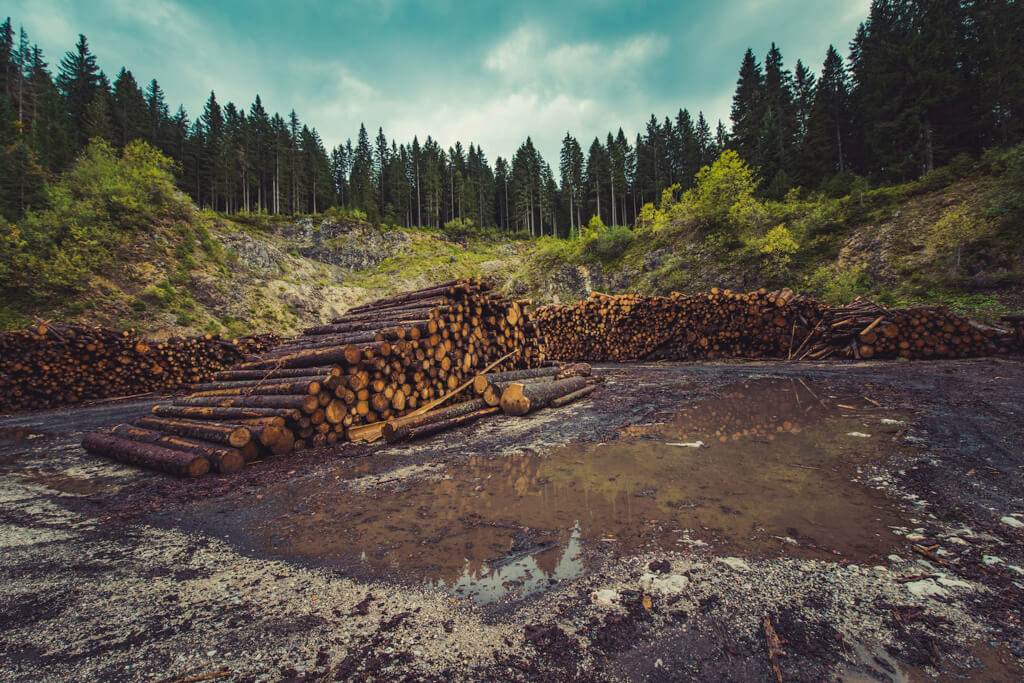May 23, 2024
📰 FEATURE STORY
Will the forest certification scheme help preserve Indian forests?

Indian forests are often subject to contentious pieces of legislation. All have the same goal – to preserve the forest areas and, in some cases, the people and wildlife that occupy the land. The problem is that increased urbanisation and development have complicated matters.
To help preserve the forests, the government launched the Indian Forest and Wood Certification Scheme (IFWCS) last December. It offers voluntary third-party certification on timber and non-timber forest products (NTFP) from forest and private land harvested sustainably. The government hopes this would promote agroforestry and enhance the market value for forest products. Would this work?
Context
Sustainable forest management in India dates back to its colonial past. Post the 1865 Indian Forest Act, the government took control of forest land to increase timber production needed to build ships. India’s first Inspector General of Forests, Dietrich Brandis, proposed the idea of sustainable forest management.
The goal was to harvest timber, and each division was divided into working circles, which would be further subdivided into compartments. Across each compartment, there would be a rotation in the harvest of trees. This would result in forest regeneration and a sustainable supply of timber.
Since the focus was solely on producing timber, other aspects like biodiversity and the livelihoods of forest-dependent communities were ignored. Post-independence, this practice continued until 1996, when the Supreme Court intervened. In the landmark Godavarman versus Union of India case, the court stated that permission from the forest department was needed before felling trees on private land.
The result was reduced deforestation on private land and in forests above 1,500 metres and in the northeast, it was banned. On the flip side, many state forest departments became obsolete, and farmers didn’t feel encouraged to grow trees on their farms.
Forest certification was something of a global movement initiated after the Rio Earth Summit. Simply put, it’s a market-based non-regulatory conservation tool to promote sustainable forest management. In 2019, India had a globally recognised scheme called the Certification Standard for Sustainable Forest Management (SFM) developed by the Network for Certification and Conservation of Forests (NCCF).
The government formally launched its scheme last year, implemented by the Indian Institute of Forest Management, Bhopal. The scheme will ensure environmental labels on the source of forest and tree-based products. The product will have a logo under the brand name PRAMAAN. The scheme is available to individual farmers, industries engaged in agroforestry, wood-based industries, etc.
While all of this sounds good on paper, does it actually affect how forests are conserved? Will a certification label be enough to ensure consumers become more conscious?
VIEW: It’s necessary
India’s forests are under threat. While large-scale destruction of forests has been a long-standing concern, climate change has increased that worry. While over 100 countries have pledged to reverse the trend of deforestation by 2030, it may not be enough. What certification also does is ensure forests aren’t exploited. India’s timber needs far outweigh the supply. It’s why India only allows exports of processed wood, not timber. That’s why the demand is met by trees outside forests (ToF).
Private certification agencies can be dubious, so this is where the government’s scheme comes into play. Investigations on deforestation and greenwashing have raised doubts on the integrity of several private certification agencies. It affected people accepting Indian products in the international market. Some countries tightened the rules for the import of forest products.
Unlike in colonial times, the criteria under the government’s scheme include conservation and management of soil and water, enhancement of biodiversity, including wildlife, and accounting for social, economic, and cultural benefits. That’s why certification is necessary – to go beyond just conserving forests.
COUNTERVIEW: Might not help that much
A study by the International Tropical Timber Organisation noted that the demand for roundwood in India to make paper and furniture was about 57 million cubic metres in 2020. 47 million of that was from domestic sources. Of that 47 million, 45 million were from trees outside forests, while the rest were from state-owned forests. In this context, certification would’ve been useless. Also, very little timber from teak and sisham was exported in 2020.
If we take non-timber forest products, produce like mahua flowers and tendu leaves are gathered and marketed locally. They aren’t exported in their raw form, so certification doesn’t help. As far as farmers and growing trees are concerned, there has been little to no improvement in agroforestry, even before the IFWCS. Global examples have shown that certification can marginally increase the market value but comes with high costs. This isn’t good news for marginal farmers.
Some studies have shown that there isn’t enough reliable evidence to show if certified tropical forests are better than, worse, or the same as conventionally managed forests for people. Profits and other economic benefits can be low for certified logging companies. If you look at the Forest Stewardship Council (FSC) certification, there’s little known about its effectiveness. Some studies are biased and make few appropriate comparisons, like only looking at FSC-certified forests and ones that aren’t.
Reference Links:
- Wood certification to give information on source of forest products – Times of India
- Forest certification scheme launched, origin of tree-based products can be checked by green-conscious consumers – Times of India
- India’s first forest-certification scheme gets global recognition – Down to Earth
- Is Forest Certification Necessary for Sustainable Forest Management in India? – The India Forum
- Does forest certification really work? – Mongabay
What is your opinion on this?
(Only subscribers can participate in polls)
a) The forest certification scheme will help preserve Indian forests.
b) The forest certification scheme won’t help preserve Indian forests.
🕵️ BEYOND ECHO CHAMBERS
For the Right:
Why Nitish Kumar faces an existential crisis in Bihar
For the Left:
Indian elections: What the biggest show on earth can teach the world

